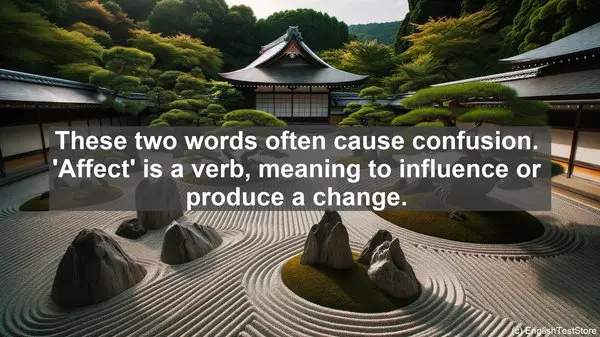Introduction: The Importance of Precision in Pharmaceutical Formulation
Welcome to today’s lesson on commonly confused words in pharmaceutical formulation. As future professionals in the pharmaceutical industry, it’s essential to communicate with precision. Misunderstandings can have serious consequences. So, let’s dive into the top 10 words you need to master!
1. Affect vs. Effect
These two words often cause confusion. ‘Affect’ is a verb, meaning to influence or produce a change. On the other hand, ‘effect’ is usually a noun, representing the result or consequence of an action. Remember, ‘affect’ is the action, and ‘effect’ is the end result.

2. Compliment vs. Complement
While they sound similar, their meanings are different. ‘Compliment’ with an ‘i’ refers to praise or an expression of admiration. On the other hand, ‘complement’ with an ‘e’ means to complete or enhance something. So, you can receive a compliment, but two substances can complement each other in a formulation.
3. Accept vs. Except
The difference lies in just one letter, but it’s crucial. ‘Accept’ means to receive or agree to something. On the other hand, ‘except’ is used to exclude or leave out. So, you might accept a proposal, but with a few exceptions.
4. Principal vs. Principle
Here’s another pair that often causes confusion. ‘Principal’ with ‘pal’ refers to a person in a leading position or the main element. On the other hand, ‘principle’ with ‘ple’ represents a fundamental truth or a rule. So, the principal of a school enforces the principles of education.
5. Stationary vs. Stationery
These two words are pronounced the same but have different meanings. ‘Stationary’ with an ‘a’ means not moving or fixed. On the other hand, ‘stationery’ with an ‘e’ refers to writing materials like paper, pens, etc. So, you might have a stationary phase in a formulation, but you’ll need stationery to document your findings.
6. Elicit vs. Illicit
The difference in spelling is small, but the meanings are vastly different. ‘Elicit’ means to draw out or evoke a response. On the other hand, ‘illicit’ means illegal or forbidden. So, you might elicit a response during a study, but using illicit substances is strictly prohibited.
7. Capital vs. Capitol
These two words are often confused, especially in the context of government. ‘Capital’ with an ‘a’ refers to a city where the government’s central functions are located or financial resources. On the other hand, ‘capitol’ with an ‘o’ represents a building where a legislative body meets. So, Washington, D.C., is the capital of the United States, and the Capitol building is where Congress convenes.

8. Advise vs. Advice
Here’s a common confusion. ‘Advise’ with an ‘s’ is a verb, meaning to give guidance or recommend. On the other hand, ‘advice’ with a ‘c’ is a noun, representing the guidance or recommendation itself. So, you might advise someone, but the advice you give is valuable.
9. Comprise vs. Compose
These two words are often used interchangeably, but they have distinct meanings. ‘Comprise’ means to include or contain. On the other hand, ‘compose’ means to make up or form. So, a formulation might comprise several ingredients, and those ingredients compose the final product.
10. Farther vs. Further
The difference between these two is related to distance, both literal and figurative. ‘Farther’ refers to physical distance. On the other hand, ‘further’ is used for metaphorical or figurative distance, indicating advancement or progress. So, you might travel farther for a study, but further your knowledge in the process.
